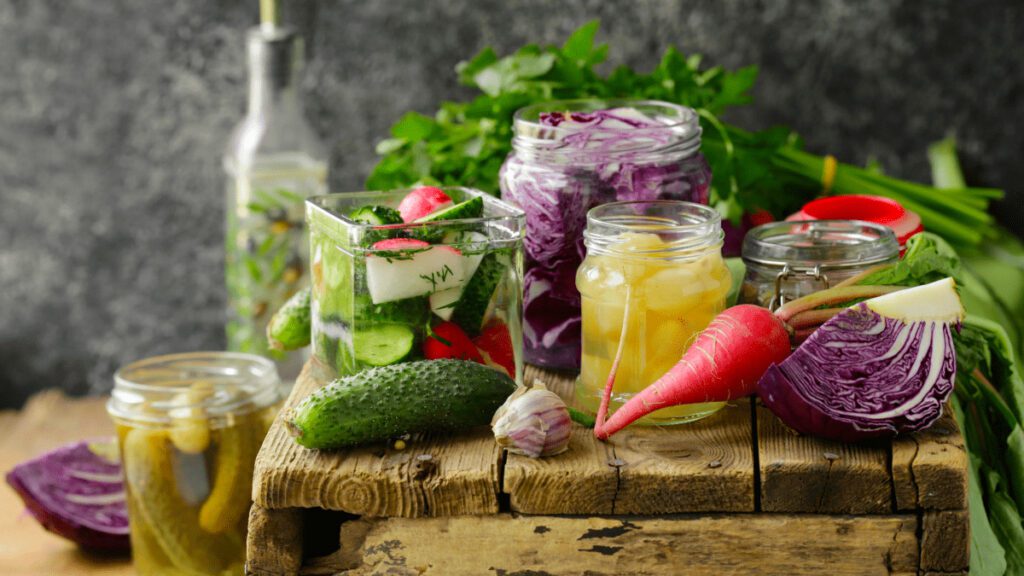Traditional, old-fashioned life skills for adults are making a comeback in today’s world, and for good reason. A lot of knowledge that belonged to our ancestors has been lost through time, however a recent revival of skills like growing, preparing, and preserving food, woodworking, off-grid-living, needlecrafts, and many more has captured the imagination of adults looking for a more sustainable way of living. Once considered essential in previous generations, these skills fell out of favor in a world focused on convenience, however they are now being rediscovered by people of all ages. In a world where technology is advancing at an unprecedented pace, a return to these time-honored life skills for adults is a testament to the value of honoring ancestral knowledge.
Benefits of Old School Life Skills for Adults
Saving Money
One of the biggest benefits of learning these old-fashioned life skills is that they can save you money. For example, brewing your own beer at home can save you money on expensive craft beers. Similarly, gardening can save you money on produce. By growing your own fruits and vegetables, you’re reducing your grocery bill and supporting local agriculture.
Being Self-Sufficient
Another benefit of learning these skills is that they make you more self-sufficient. By learning how to grow your own produce or brew your own beer, you become less reliant on others. This can be incredibly empowering and liberating.
Reducing Your Carbon Footprint
Finally, learning traditional life skills can help reduce your carbon footprint. By living off-the-grid or growing your own produce, you’re reducing your reliance on fossil fuels and other environmentally harmful practices. You’re also supporting sustainable agriculture and reducing the amount of food that needs to be transported long distances.
How to Learn Practical Life Skills for Adults
There are many resources available for learning these old school life skills. Online courses, books, and local workshops are all great places to start. You can also find many resources online for free. For example, YouTube has many channels dedicated to traditional arts. There are also many blogs and websites that provide tips and advice on living off-the-grid. Below you will find applicable resources to get you started.
5 Traditional Life Skills for Adults to Consider Learning Now
This post contains references to products from one or more of our advertisers. We may receive compensation if you click on the links to those products. Visit this page for our advertising policy.
Here are five old-fashioned life skills that are still useful today, along with the advantages they offer, and ways to learn more about each skill.
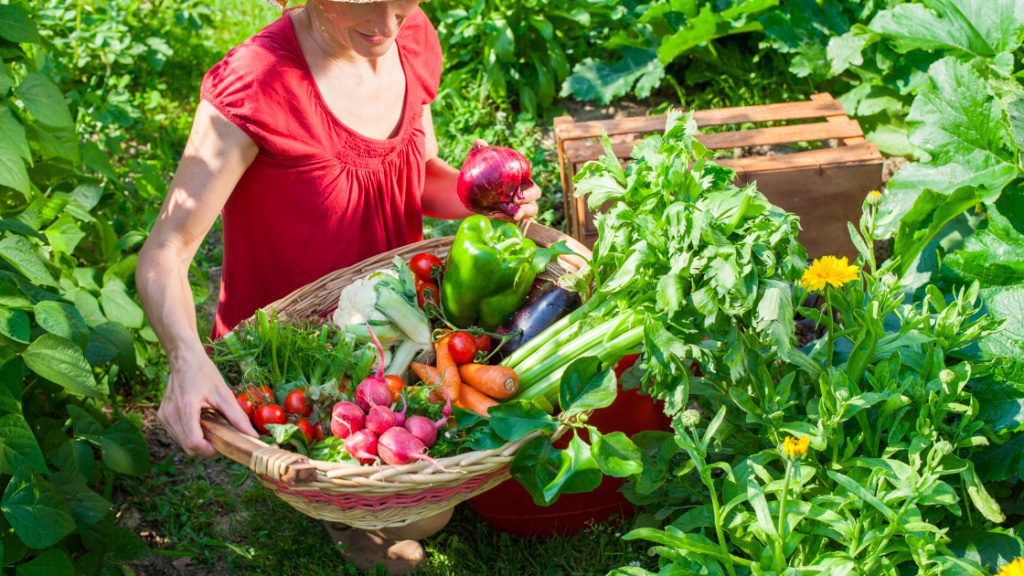
1. Gardening
Learning to grow your own food offers a myriad of benefits to adults looking to maximize valuable life skills. In addition to providing you and your family with fresh produce, it can be a fantastic way to save money and be good for the environment. By growing your own fruits and vegetables, you’re reducing your carbon footprint and supporting sustainable agriculture.
You can grow veggies in pots on your balcony or patio if you don’t have much space for a garden. You’ll need certain essential tools, including soil, seeds, and containers, to start a garden. Pick easy-to-grow veggies like lettuce, tomatoes, and herbs. Here are some great options for building your gardening skills.
Books:
As an Amazon Associate we earn from qualifying purchases.
- The Vegetable Gardener’s Bible by Edward C. Smith is a comprehensive guide to vegetable gardening that covers everything from soil preparation to harvesting.
- Rebel Gardening: A beginner’s handbook to organic urban gardening by Alessandro Vitale. This is the ultimate beginner’s guide to establishing and tending an organic kitchen garden in any urban space, no matter how small.
- The Old Farmer’s Almanac Vegetable Gardener’s Handbook was created for novices, aspiring growers, green thumbs, and old hands alike, and is loaded with advice and inspiration to guarantee success for every vegetable garden—and every gardener!
Videos:
- Garden Answer is a YouTube channel that provides helpful tips and tutorials on gardening.
- Epic Gardening is another YouTube channel that provides helpful tips and tutorials on gardening.
Websites:
- The Old Farmer’s Almanac website has many resources for gardening beginners, including planting guides and how-to articles.
- Garden.org has many resources for gardeners of all skill levels, including a learning library, podcasts, and videos.
Courses:
- Ron Finley Teaches Gardening on MasterClass is an excellent course that will show you how to start a garden, no matter how small the space or where you may live.
- The Beginner’s Guide To Vegetable Gardening on Udemy is a beginner-friendly course that covers everything from soil preparation to harvesting.
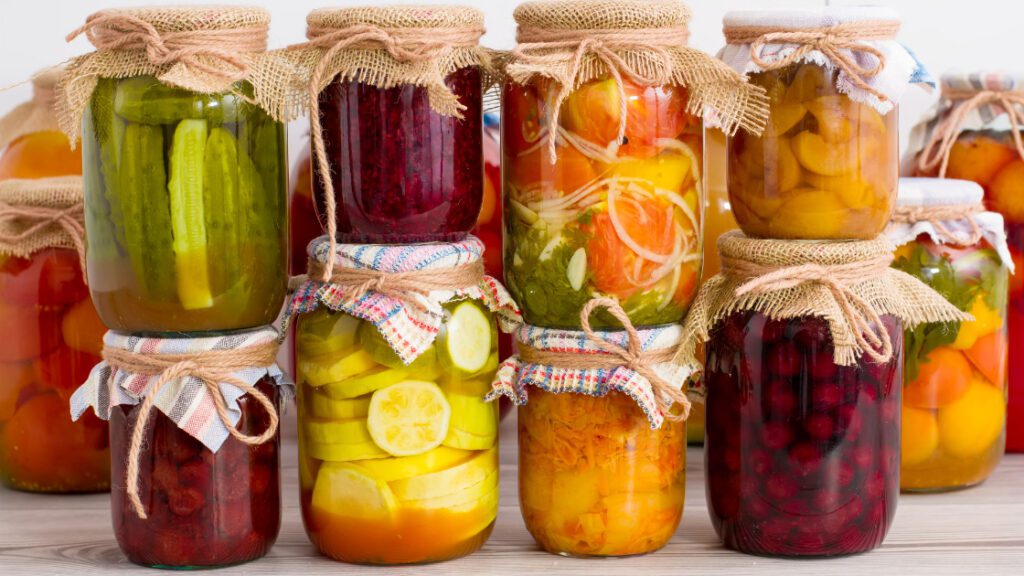
2. Preserving Your Harvest
An excellent old-fashioned life skill for adults that will extend the life of your harvest, prevent food waste, and save money is to preserve your produce. Fruits and vegetables can be preserved via canning, freezing, fermenting, or dehydrating. You will be able to do this and have access to fresh food all year long.
Canning
Canning is an excellent way to preserve food for longer periods of time. It’s also a great way to use up excess produce from your garden. To can fruits or vegetables, you will need some basic supplies such as jars, lids, and a canning pot.
Books:
As an Amazon Associate we earn from qualifying purchases.
- The Ball Blue Book Guide to Preserving is a comprehensive guide to canning, freezing, and dehydrating food.
- Preserving by the Pint by Marisa McClellan is a beginner-friendly guide to preserving small batches of food.
- The Complete Guide to Pressure Canning by Diane Devereaux is a comprehensive guide to pressure canning.
Videos and Podcasts:
- The Canning Diva is a YouTube channel that provides helpful tips and tutorials on canning and preserving food.
- The Provident Prepper is another YouTube channel that provides helpful tips and tutorials on food preservation.
Websites:
- National Center for Home Food Preservation has many resources for food preservation, including recipes and how-to guides.
- Simply Canning has many resources for canning and preserving food, including recipes and how-to guides.
- The Ball Canning website has detailed instructions on how to preserve fruits and vegetables.
Courses:
- Canning and Preserving 101 on UniversalClass is a beginner-friendly course that covers everything from water bath canning to pressure canning.
- Water Bath Canning for Beginners- Canning Food Safely from Udemy covers the basics of Water Bath Canning to complete two recipes which include making homemade jam and homemade salsa.
Fermenting
Fermenting is an ancient technique that has been used for centuries to preserve food. Fermented foods are not only delicious but also good for your gut health. You can ferment vegetables, fruits, dairy products, and more.
Books:
As an Amazon Associate we earn from qualifying purchases.
- Wild Fermentation by Sandor Ellix Katz is a comprehensive guide to fermentation that covers everything from basic techniques to advanced recipes.
- The Farmhouse Culture Guide to Fermenting: Crafting Live-Cultured Foods and Drinks with 100 Recipes from Kimchi to Kombucha by Kathryn Lukas and Shane Peterson is an authoritative and easy-to-use guide to fermentation with 100 recipes for fermented foods and drinks.
- Ferment for Good: Ancient Food for the Modern Gut by Sharon Flynn is a beginner-friendly guide to fermentation that covers everything from basic techniques to advanced recipes.
Videos:
The Fermentation Adventure is a YouTube channel that provides helpful tips and tutorials on fermentation.
Websites:
- Wild Fermentation has many resources for fermenters of all skill levels, including articles, forums, and how-to guides.
- Fermentation Recipes has many recipes and how-to guides for fermenters of all skill levels.
Courses:
- Fermented Foods Mastery on Udemy takes you through the fundamentals of probiotic nutrition, and teaches you how to implement the power of fermented foods into your life.
- Skillshare offers several different fermentation topics from vegetables to dairy to kombucha, where you can choose one or all to ramp up your fermentation skills.
3. Cooking from Scratch
In comparison to eating out or purchasing prepared meals, cooking from scratch is not only more economical but also healthier. When you prepare meals from home, you have control over what ingredients are used and can stay away from harmful preservatives and additives. Making your own spaghetti sauce or bread is simple and only needs a few ingredients.
Here are some resources for learning to cook from scratch:
Books:
As an Amazon Associate we earn from qualifying purchases.
- How to Cook Everything: The Basics by Mark Bittman is a comprehensive guide to cooking that covers everything from knife skills to cooking grains.
- Good Cooking is Easy by Chef Darryl Spence was written for the person with no or little cooking experience.
- The Joy of Cooking by Irma S. Rombauer is a classic cookbook that covers everything from appetizers to desserts.
Videos:
- Kitchn Cooking School is a free online cooking course that covers everything from knife skills to cooking grains.
- MasterClass offers online cooking classes taught by world-renowned chefs such as Gordon Ramsay and Alice Waters.
Websites:
- Allrecipes has many recipes for cooking from scratch, including recipes for beginners and advanced cooks.
- Serious Eats has many recipes and how-to guides for cooking from scratch, including recipes for beginners and advanced cooks.
- The Kitchn website has many recipes for cooking from scratch.
Courses:
- Rouxbe offers online cooking courses taught by professional chefs that cover everything from knife skills to advanced techniques.
- Sur La Table offers online cooking classes taught by professional chefs that cover everything from knife skills to advanced techniques.

4. Woodworking
Building something with your own hands is a pleasant aspect of woodworking. You can also utilize leftover wood from past projects if you don’t have any expensive tools or materials. A saw, hammer, nails, and sandpaper are some of the basic tools you will need to create a straightforward piece of furniture or birdhouse.
Database of Learning Resources and Plans:
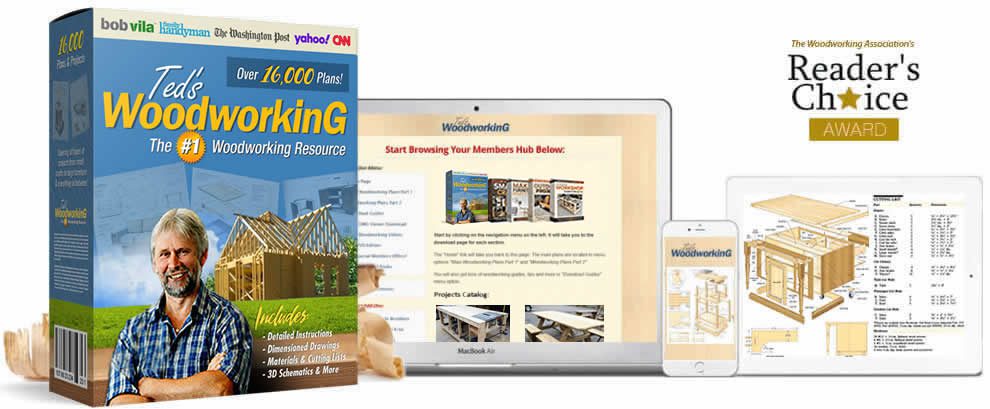
Make 16,000 Projects with Step By Step Plans…even if you don’t have a large workshop or expensive tools!
So, what makes a “perfect woodworking plan? Simply put, it must be detailed enough to leave nothing to guesswork yet simple enough for beginners. It must also contain complete instructions from start to finish. Learn more about the features of Ted’s Woodworking and the extensive resources available for all levels of skill and competence.
Books:
As an Amazon Associate we earn from qualifying purchases.
- The Complete Book of Woodworking by Tom Carpenter is a comprehensive guide to woodworking that covers everything from basic skills to advanced techniques.
- Woodworking For Dummies by Jeff Strong is a beginner-friendly guide to woodworking that covers everything from choosing the right wood to finishing your project.
- Making Authentic Craftsman Furniture by Gustav Stickley is a classic book that covers the basics of furniture making.
Videos:
- Woodworkers Guild of America is a website that provides helpful tips and tutorials on woodworking.
- Woodworking Masterclasses is another website that provides helpful tips and tutorials on woodworking.
Websites:
- Instructables has many tutorials on woodworking, including projects for beginners and advanced woodworkers.
- Fine Woodworking has many resources for woodworkers, including on-demand videos and interactive online courses.
Courses:
- Udemy offers many online courses on woodworking, ranging from beginner to advanced levels.
- Skillshare also offers woodworking online courses at varying skill levels.
5. Sewing
Sewing is an essential skill that can save you money and help you repair or create your own clothes. Knowing how to sew on a button or mend a tear in clothing can extend the life of your garments, and the satisfaction of learning to make your own wardrobe can be a meaningful life skill to pass down through the generations.
Database of Learning Resources and Patterns:
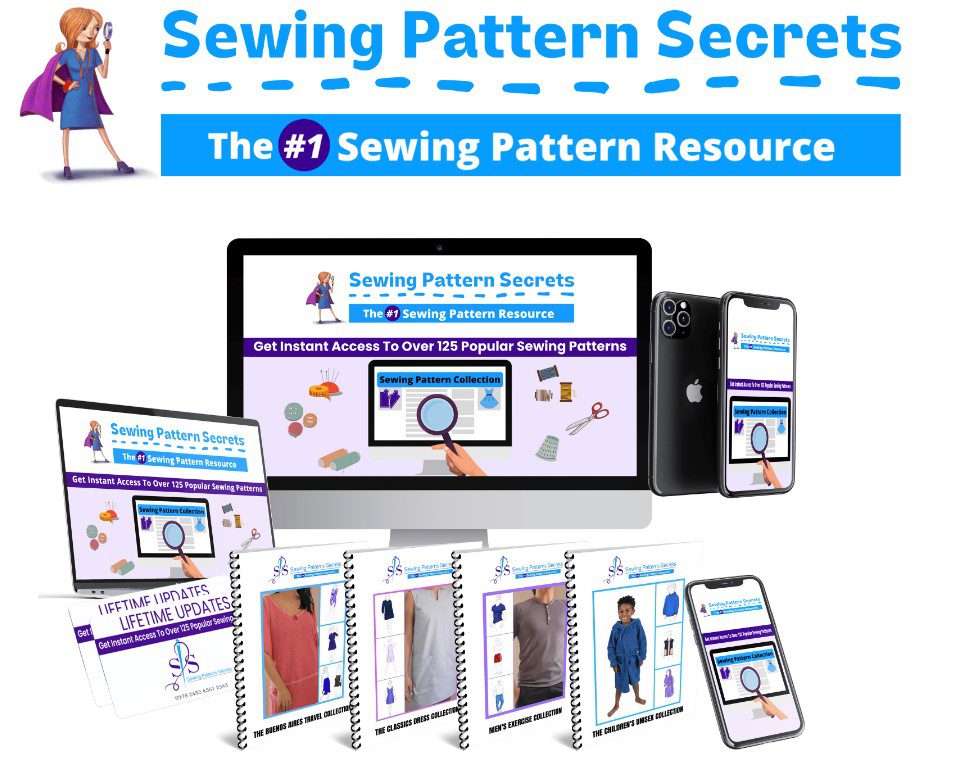
Patterns So Detailed…They Practically Stitch Themselves Together!
All your patterns come with highly detailed schematics so there is no need for guesswork.
Sewing Pattern Secrets gives you total package instructions, videos and resources to empower you to get those sewing projects done right the first time…while avoiding all the blunders and confusion so commonly associated with other sewing patterns currently being offered online.
Books:
As an Amazon Associate we earn from qualifying purchases.
- Sewing School: 21 Sewing Projects Kids Will Love to Make by Andria Lisle is a beginner-friendly guide to sewing that covers everything from basic techniques to advanced projects.
- Sewing For Dummies by Jan Saunders Maresh is a comprehensive guide to sewing that covers everything from choosing the right fabric to finishing your project.
- The Sewing Book: Over 300 Step-by-Step Techniques by Alison Smith is a classic book that covers everything from basic techniques to advanced projects.
Videos:
- Professor Pincushion is a YouTube channel that provides helpful tips and tutorials on sewing.
- Sewing Mastery is another YouTube channel providing useful information and how-to’s on sewing.
Websites:
- Sewing.com has many articles and how-to guides for sewers of all skill levels, including patterns and tutorials.
- Sewing.org has many resources for sewers of all skill levels, including articles, forums, and how-to guides.
Courses:
- Udemy offers a variety of courses ranging from beginner-friendly to advanced techniques.
- Skillshare also offers many sewing courses covering everything from basic techniques to advanced projects .
Practical Life Skills for Adults Are Worth the Effort!
In conclusion, old school life skills are making a comeback for good reason. They’re not only fun and rewarding but also practical and environmentally friendly. By learning these skills, you’re becoming more self-sufficient and reducing your impact on the environment. So why not start learning these skills today? You never know when they might come in handy.
For more ways to benefit from the knowledge and skills of the older adults in your life and give them the satisfaction of passing on their experiences, check out our article on the Benefits of Intergenerational Relationships: Bridging the Age Gap.


